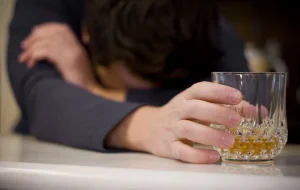Hangxiety: Why Drinking Alcohol Can Make You Feel Anxious and How to Deal With It

As this is happening, it can affect your central nervous system and cause you to feel jittery or anxious. But then they become dependent on alcohol as a way of reducing stress. If they come to a point where they need to stop drinking, they will have lost one of their most powerful coping resources and may struggle to find replacement coping strategies. That’s why when you stop drinking, it’s not uncommon to experience a range of terrible symptoms, including anxiety. It’s even more common to find that after you’ve stopped drinking, anxiety makes you want to go back to alcohol. “This often creates more anxiety when sober, and negatively reinforces one to drink again to escape those psychological and physical feelings,” the Addiction Center medical content director said.
- Most patients notice a reduction in anxiety within 2 to 4 weeks, with continued improvement over time.
- People with AUD may have a higher risk of developing an anxiety disorder, such as generalized anxiety disorder or social anxiety.
- Endless Mountain Treatment Center provides personalized addiction treatment programs with a focus on recovery and lasting wellness.
Health Products

In other words, the processes Substance abuse involved in the initiation and the maintenance of comorbidity may differ in meaningful ways. One hypothesis emerging from the comorbidity literature is that anxiety and AUDs become intertwined in a reciprocal, perpetuating cycle. This positive feedback loop often is characterized as a feed-forward or mutual-maintenance pattern. Moreover, alcohol-induced changes in sleep patterns, mood regulation, and overall brain function can further worsen anxiety symptoms over time.

Strategies for Reducing Caffeine and Alcohol Consumption
Experiencing panic attacks after drinking alcohol is common because blood alcohol levels go up and down. Rising alcohol levels can make your heart beat faster and affect your blood sugar, causing feelings of unease or dizziness. According to a study, heavy drinking—defined as more than three drinks per day for men and more than two for women—is linked to faster cognitive decline and increased risk of dementia. In contrast, light to moderate alcohol consumption shows no protective effects against cognitive impairment. However, as alcohol consumption increases, it can disrupt the balance of other neurotransmitters like serotonin and dopamine.
Oar Health: Medication-Assisted Treatment
It is possible, however, that some of these studies might have excluded subjects with more severe anxiety or depressive disorders from the original samples, and consequently more work in this area is required (Kushner 1996). Medications that target a brain signaling system which uses the neurotransmitter serotonin and its receptors perhaps are the safest and does alcohol cause anxiety most widely used agents to treat anxiety disorders. These agents include the SSRIs, SNRIs, and the serotonin partial agonist buspirone. For example, a direct examination of the efficacy of paroxetine in this population showed that it reduced social anxiety relative to placebo (Book et al. 2008), providing an empirical foundation for its use in these patients. Moreover, serotonergic agents have favorable properties, such as being well-tolerated and having virtually no abuse potential. Another welcome characteristic of SSRIs in patients with comorbid AUDs is that, in contrast to TCAs, they do not interact with alcohol to increase the risk of respiratory depression (Bakker et al. 2002).

